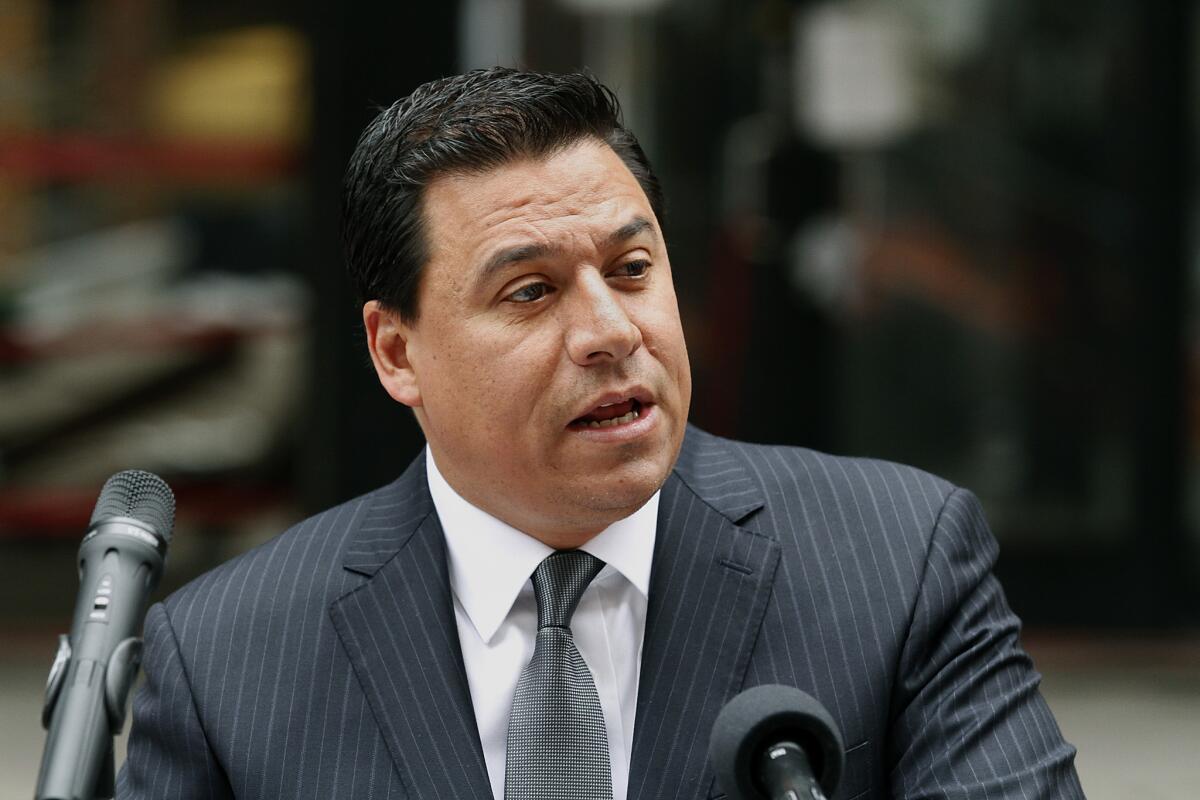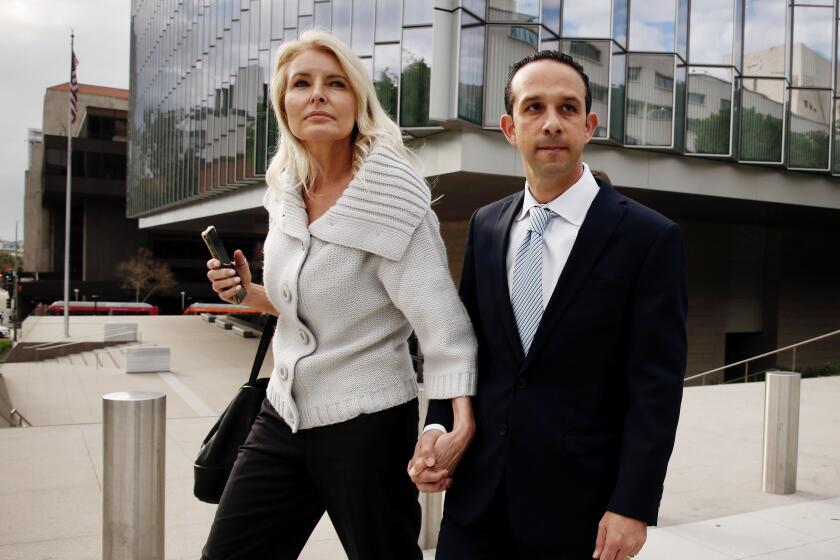Feds add bribery and money laundering charges against L.A. Councilman Jose Huizar

Los Angeles City Councilman Jose Huizar, who was arrested and charged with racketeering last month in an ongoing pay-to-play probe, now faces additional charges including bribery and money laundering, federal prosecutors announced Thursday.
The new charges were included in a 34-count grand jury indictment expanding on earlier allegations that Huizar headed up a criminal enterprise that leveraged his power at City Hall for financial gain, aiding real estate developers who handed over bribes including cash, free flights, casino chips and other perks.
The 113-page indictment also includes claims that others conspired with Huizar in the scheme, including a former deputy mayor who previously headed the Department of Building and Safety. Federal prosecutors allege that Huizar agreed to accept at least $1.5 million in illicit financial benefits.
Indictment of Los Angeles City Councilman Jose Huizar
He is the fifth person to be charged in the ongoing investigation, which has netted guilty pleas from former Huizar aide George Esparza, real estate consultant George Chiang, political fundraiser Justin Jangwoo Kim and former Councilman Mitchell Englander.
The indictment alleges that Huizar tried to cover up the illicit money in several ways, including guiding his aide on how to avoid bank reporting requirements and using family members to launder hundreds of thousands of dollars in bribes. It also alleges that he made false statements to federal prosecutors and the FBI.
Huizar, 51, is scheduled to be arraigned Monday. Attorneys for the councilman have previously stated that Huizar “intends to respond to the government’s allegations in court.” He is now being represented by attorneys from the federal public defender’s office, one of whom declined to comment Thursday.
Many of the allegations in the indictment were revealed last month in a criminal complaint against the councilman, including that a Chinese billionaire planning a new skyscraper in his downtown district provided $600,000 in collateral to help Huizar quietly settle a sexual harassment lawsuit filed by a former aide.
As L.A. officials battle the coronavirus pandemic, a corruption scandal has fueled mistrust in City Hall.
But the document lays out additional details about the alleged crimes. For instance, the criminal complaint alleged that a businessman who wanted Huizar to introduce him to developers paid for gifts including expensive suits, meals and hotel stays for the councilman to meet with a woman with whom he was having an affair.
The indictment, in turn, lays out an itemized list of those alleged gifts with dates and dollar amounts, such as a “suit and shirts” worth $6,000 on June 13, 2016, and “hotel accommodation” worth $1,513.49 on June 19, 2017.
In another instance, the criminal complaint filed in June included allegations that a real estate developer provided political donations as part of a bribery scheme to win approval for an Arts District project. The indictment adds another allegation: that an executive with that development company talked to Huizar about hiring the councilman after he left office.
Federal prosecutors have not named the former deputy mayor allegedly involved in the criminal enterprise, but biographical details included in the indictment and criminal complaint make clear it is Raymond Chan, who has not been arrested or publicly charged in the case.
His attorney, Harland Braun, did not immediately provide comment Thursday but has previously stated that Chan did nothing wrong.
The charges that Huizar faces carry maximum sentences that could stretch for decades, according to a statement released by the U.S. attorney’s office in Los Angeles. Money laundering, for instance, can be punished by up to 20 years in federal prison, while making false statements to a financial institution carries a maximum sentence of 30 years.
More to Read
Sign up for Essential California
The most important California stories and recommendations in your inbox every morning.
You may occasionally receive promotional content from the Los Angeles Times.












